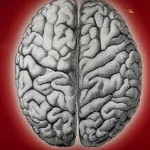The Western/Eastern Mind Divide
UBC cultural psychologist Steven Heine discovered profound differences between Western and Eastern minds. A recipe for prejudice, or just the opposite?
from VANCOUVER MAGAZINE, April, 2010
It would be overstating things to claim it made Steven Heine famous—because nobody in his emerging field of cultural psychology is famous—but a study led by the young UBC professor did generate chatter in all kinds of quarters, from academic journals to the back page of Time. It got people thinking about the Western mind and the Eastern mind and the differences between them. Now that the East has just overtaken the West in economic strength (the tipping point, after a couple of centuries of Western dominance, came in 2006), Heine’s experiment seems positively pregnant with meaning.
Here’s the scoop. Heine and three colleagues recruited two groups of students—one Euro-Canadian and the second Japanese—and he gave them a bogus “creativity” task. The test was graded, and the students were told they had done well on some parts and poorly on others. Heine was interested in what would come next. The students were given a second, similar test, and the psychologist and his colleagues secretly watched how the subjects tackled it. Turned out there was a glaring buy ambien next day delivery difference. The Westerners worked longer on the stuff they were told they had aced the first time. The Easterners concentrated on the areas they thought they had botched. Students from the West—where the cult of self-esteem reigns supreme—wanted a tummy rub. Students from the East were more concerned with fixing their blind spots, becoming well-rounded. The Westerners polished up their strengths while the Easterners addressed their weaknesses. You could hardly fail to take away a moral: what gains might be made if Westerners could just check their egos and learn to see opportunity in failure! (Largely on the strength of the study, Heine received in 2003 the American Psychological Association’s Award for Distinguished Scientific Early Career Contributions to Psychology.)
But Heine wasn’t trying to sermonize or shill for the Ministry of Education. By exposing this deep cultural rift, Heine punctured a long-held myth. You’d think positive self-regard gets everyone through their day, but it doesn’t. If such a seemingly basic human motivation is culturally determined, what else is? Turns out, lots. Western and Eastern minds fare dissimilar in ways that we’re only now able to measure.
Read the whole article here:
www.vanmag.com/News_and_Features/The_EastWest_Mind_Divide
